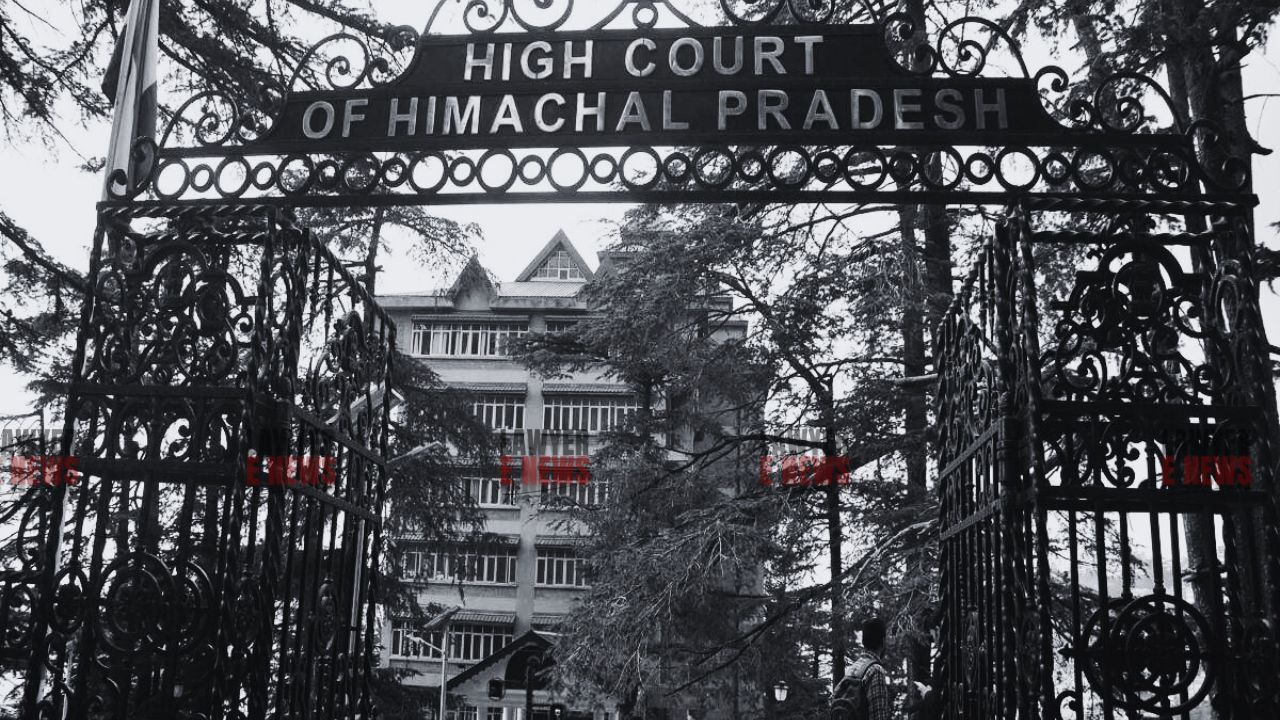-
by Admin
19 February 2026 3:14 PM



“Once possession is established, the accused must explain how it was not conscious possession” – In a significant decision addressing the principles of conscious possession and the rigorous conditions for bail under Section 37 of the NDPS Act, the Himachal Pradesh High Court refused to grant bail to a man allegedly found inside a vehicle carrying 3.575 kilograms of charas, holding that mere presence in such circumstances raises a legal presumption of guilt under the NDPS Act.
Justice Rakesh Kainthla stated: “In the factual scenario of the present case, not only possession but conscious possession has been established. It has not been shown by the accused that the possession was not conscious in the logical background of Sections 35 and 54 of the Act.”
The Court emphasized that under the scheme of the Narcotic Drugs and Psychotropic Substances Act, 1985, particularly Sections 35 and 54, once the recovery of a contraband is made from a location or object under the accused’s control — such as a vehicle in which they are travelling — a statutory presumption arises that they had knowledge of the illicit substance.
“Conscious Possession Doesn’t Require Physical Holding – Control and Awareness Are Sufficient”
Relying on the Supreme Court’s landmark ruling in Madan Lal v. State of H.P., the Court explained that:
“The word ‘conscious’ means awareness about a particular fact. It is a state of mind which is deliberate or intended… Once possession is established, the person who claims that it was not a conscious possession has to establish it because how he came to be in possession is within his special knowledge.”
In this case, the petitioner Jitender Thakur was found sitting in the front seat of a car along with a co-accused, from which seven packets of charas — weighing over 3.5 kg — were seized from the dicky. The Court held that such non-public, jointly used transport provided sufficient grounds to invoke the presumption of knowledge.
“Bail in Commercial Quantity Cases Requires Satisfaction of Twin Conditions – Both Absent Here”
The Court also rejected the bail application under Section 37 of the NDPS Act, which bars bail in cases involving commercial quantities of narcotics unless the court is satisfied that:
There are reasonable grounds for believing the accused is not guilty, and
The accused is not likely to commit any offence while on bail.
Justice Kainthla noted: “In the present case, there is no material to show that the petitioner has not committed the offence… rather, the material on record clearly shows that the petitioner was found in possession of the commercial quantity of charas. Hence, the petitioner is not entitled to bail in view of the rigours of Section 37.”
The Court cited precedents including Union of India v. Niyazuddin and State of Kerala v. Rajesh, reiterating that bail cannot be granted unless both statutory conditions are satisfied and that the bar under Section 37 is in addition to normal CrPC bail provisions.
“No Parity in Presence – Bail to Co-accused Not a Ground for Automatic Relief”
The petitioner also invoked parity, claiming that co-accused Desh Raj had already been granted bail. But the Court distinguished the cases:
“The petitioner was present in the vehicle from which the recovery was effected. The co-accused was granted bail because he was implicated based on a statement held to be inadmissible. Hence, the petitioner cannot claim parity.”
“Mere Absence of Call Records or Bank Transactions Cannot Defeat Presumption of Possession”
The defence argued that no call detail records or financial link to the contraband were shown. The Court dismissed this line of argument, holding:
“The petitioner was present in the vehicle from which the recovery was effected. This was, prima facie, sufficient to connect the petitioner with the commission of the crime. The absence of call detail records and bank account transactions will not assist the petitioner.”
The Court further noted that once possession is shown, the burden shifts to the accused under the NDPS framework, and no plausible explanation had been offered by the petitioner.
Petition Dismissed – Observations Not to Influence Trial
Concluding, the Court held that the statutory presumptions stood unrebutted, the bail bar under Section 37 applied, and no special circumstance justified deviation. Accordingly, the bail application was dismissed.
“The present petition fails and the same is dismissed. The observations made hereinabove are regarding the disposal of this petition and will have no bearing, whatsoever, on the merits of the case.”
Date of Decision: 4 June 2025
